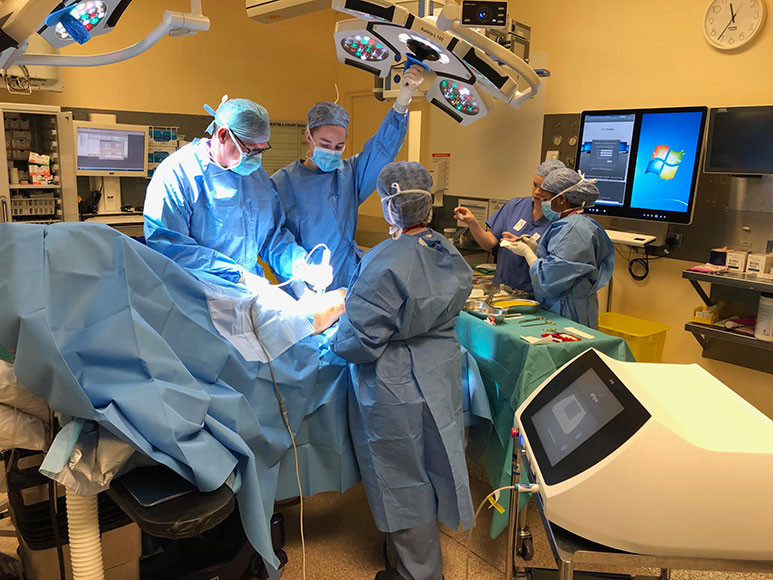Evaluation of Electrochemotherapy to Improve Patient Quality of Life and Palliation in Hard to Treat Tumours
 Mr Jim Clover, Consultant Plastic Surgeon
Mr Jim Clover, Consultant Plastic Surgeon
Electrochemotherapy is a targeted localised therapy for malignancies of Skin and non-skin origin that has been gaining wide acceptance into clinical practice since the initial standard operating procedures were developed in an international multicentre clinical trial including the Cancer Research @ UCC. The Centre with the support of Breakthrough Cancer has remained central to the development of this technique and is a global leader in the advancement of this treatment and its delivery. Breakthrough Cancer has been central to the continued delivery and improvements to this treatment by supporting the post of a Clinical Research Nurse Specialist. This project is to continue to fund the post of a Clinical Research Nurse Specialist. The key deliverable of this role is improving the quality of care for cancer patients, both in the early curative phase of their treatments improving survivorship but also, in particular, improving later-stage palliative care by improving the quality of life. Electrochemotherapy for patients with cutaneous tumours is becoming increasingly established in patients who are unable to undergo more conventional treatment due to disease state or co-morbidities.
The aim of the CRNS will be to strive to improve patient outcomes and quality of life through clinical care, research, and education. This is achieved by liaising with patients, families, caregivers, and the wider community care services to ensure the patients receive to best possible care. This is achieved both through local interactions and through producing quality research focused on the patient experience and outcome. Since the successful receipt of further funding in May 2019, The CRNS role has been delivering on those aims in addition to several other key deliverables that continue to improve the knowledge base on ECT and improve patient choice. We strongly believe that as this treatment develops it is essential that all opportunities are taken to evaluate the delivery and outcomes of the procedure and optimise the patient experience. As such there are several translational studies that will be enabled by this continued funding.
Back









 Contact
Contact